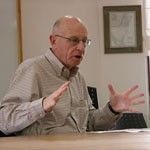By Ira Sharkansky, Ph.D

JERUSALEM — Israel is a serious country. It’s hard to imagine, from a perspective of years ago. Now more than 9 million in population, with a currency increasing in value against others, and apparently able to extract two citizens accused of treason in Turkey due to what seems like the innocent photograph of the President’s residence, without an overt concession to Turkey.
Is much of Israel’s weight due to its closeness to the United States? Perhaps some of it is due to that, but there’s also some tension with that great power, due to Israel’s relations with China.
Among Israel’s strengths is high tech. A start-up nation, with companies working on highly secret and sensitive stuff, as well as to what seems trivial in terms of facilitating the stocking of supermarkets. Apparently, it is foreign investment in the sector that is responsible for the shekel’s strength.
We also hear about highly stressed schools, with large classes and teachers who are less than intellectual stars. But it’s a country of Jews, where the acquisition of skills and ambition comes from home.
With a lot of the talented being Arabs, who don’t fit the pattern of anxious and aspiring Jews.
It’s also a place that’s highly congested, with high-rise apartment blocks built alongside one another, and roads clogged tight during commuting hours, which stretch to cover more and more of each day. As well as with tensions between its principal nations: Haredim, Arabs, and the rest of us, made dependent with a closely competitive politics, having many parties that are not parties in the conventional sense, but loose coalitions around individuals, not separated by anything that looks like a political ideology.
There’s an active and aggressive media, with three television channels and a radio channel that provides news and commentary about major and minor issues, and feeds speculation about what is not reported. We know a lot about issues big and small, but don’t know all the details, kept from us by an active sensor. We’re also kept from knowing the names of some who are suspected of crimes, and other details hidden by powerful police. We’ve been left to guess about the release of two married bus drivers arrested in Turkey on serious charges, then released after a week, but without a trial.
Among the functions of the mass media is to give attention to those who feel deprived by one or another institution of the strong state. We hear every evening about one or another misery. A person who’s not gotten attention from the police, the health service, a housing or welfare agency. We hear their case, then the response of an official, sometimes claiming that the person’s charge is incorrect, or exaggerated. And all this as part of prime time news. Often beyond one’s tolerance for the awful details.
And is the Central Bank active against a falling dollar and euro that make our international purchases and travel cheap, but also pressure those seĺling overseas and getting fewer dollars and euros in exchange? Lots happening below the radar, but for the most part, who cares? We’re living weĺl. Or at least, most of us are. The stock market is high, along with Wall Street, and inflation–while up–is less than in the US. Major exceptions of us who are well off are those dependent on tourism, and crowded venues, kept to a minimum due to the Coronavirus.
With all our problems, Israel scores #12 on the UN’s Happiness Index. We’re below the Scandinavian countries, as well as New Zealand and Australia but ahead of every other place, including the US, Canada, Britain, Germany, France, and other European countries. For the most part, the UN doesn’t have decent things to say about us.
Israel is also an international actor, with or without the cooperation of Russia and the United States, against Iran’s actions in Syria, with implications for Lebanon, and at times directly in Iran, so far without serious reprisal. And Turkey’s release of Israeli bus drivers suggests a willingness to cooperate with its large customer for tourism and industrial products.
Palestine remains an open sore. What’s the border? What about Israeli settlements? No international recognition, or even Israeli recognition of those issues. What’ll happen within Palestine as Mahmoud Abbas reaches his mid-80s and shows no signs of retiring. Civil war? Something that’ll spill over into Gaza? That’s among the questions on our threshold. And Israeli Arabs are not quiet, with armed families and considerable violence between them.
Not all is well, but much is.
*
Ira Sharkansky, Ph.D., is professor emeritus of political science at Hebrew University. He may be contacted via ira.sharkansky@sdjewishworld.com